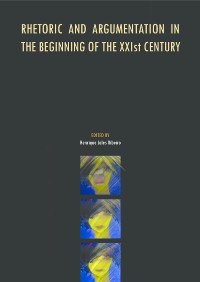Please use this identifier to cite or link to this item:
https://hdl.handle.net/10316.2/31986| DC Field | Value | Language |
|---|---|---|
| dc.contributor.author | Blair, John Anthony | |
| dc.date.accessioned | 2014-06-30T08:57:24Z | |
| dc.date.accessioned | 2020-09-19T21:06:59Z | - |
| dc.date.available | 2014-06-30T08:57:24Z | |
| dc.date.available | 2020-09-19T21:06:59Z | - |
| dc.date.issued | 2009 | - |
| dc.identifier.isbn | 978-989-26-0498-5 (PDF) | |
| dc.identifier.uri | https://hdl.handle.net/10316.2/31986 | - |
| dc.description.abstract | ABSTRACT: “Informal logic» is the name given to an approach to arguments and argumentation emerging in Canada and the United States in the 1970s and consolidated there for three decades. It developed initially independently of the influence of The Uses of Argument and La Nouvelle Rhétorique. Over the past decade especially, however, these works have become increasingly pertinent to informal logic theory. The paper begins with a brief foray into the history of ideas and the sociology of knowledge to partly explain the genesis, and hence the nature, of informal logic. Then it traces the focus of informal logic on defeasible reasoning and arguments to the difficulties fatal to the assumption that formal deductive logic provides adequate theory for the interpretation and evaluation of arguments. Turning to the influence of Toulmin, the most significant ideas for informal logic are his concepts of warrant interpreted as inference license, relevance conferrer, and argument scheme embodiment; of the field or topic dependence of backing; and of qualifiers and conditions of rebuttal interpreted as signifying the defeasibility of arguments employed in much argumentation. Perelman and Olbrechts-Tyteca’s rejection of formal logic as the theory of argumentation, their emphasis on the importance of audience, the dialectical features of their rhetoric, their concepts of particular and universal audience, and their empirical focus on argument schemes are all significant for the informal logic perspective on arguments.−The discussion of the influence of these two works is not historical for the most part, but rather reflects this author's views about the significance of some of their doctrines for current theory at the beginning of the 21st century | eng |
| dc.language.iso | eng | - |
| dc.publisher | Imprensa da Universidade de Coimbra | por |
| dc.relation.ispartof | http://hdl.handle.net/10316.2/2864 | por |
| dc.rights | open access | - |
| dc.title | The pertinence of Toulmin and Perelman/Olbrechts-Tyteca for informal logic | por |
| dc.type | bookPart | por |
| uc.publication.firstPage | 17 | - |
| uc.publication.lastPage | 32 | - |
| uc.publication.location | Coimbra | por |
| dc.identifier.doi | 10.14195/978-989-26-0498-5_1 | - |
| uc.publication.digCollection | PB | por |
| uc.publication.orderno | 1 | - |
| uc.publication.area | Artes e Humanidades | por |
| uc.publication.bookTitle | Rhetoric and argumentation in the beginning of the XXIst century: proceedings of the XXIst century | - |
| uc.publication.manifest | https://dl.uc.pt/json/iiif/10316.2/31986/222065/manifest?manifest=/json/iiif/10316.2/31986/222065/manifest | - |
| uc.publication.thumbnail | https://dl.uc.pt/retrieve/11347023 | - |
| uc.publication.parentItemId | 52809 | - |
| uc.itemId | 72558 | - |
| item.grantfulltext | open | - |
| item.fulltext | With Fulltext | - |
| Appears in Collections: | Rhetoric and argumentation in the beginning of the XXIst century: proceedings of the XXIst century | |
Files in This Item:
| File | Description | Size | Format | |
|---|---|---|---|---|
| rhetoric_and_argumentation_in_the_beginning_of_the_xxist_century__2009__blair.pdf | 1.36 MB | Adobe PDF |  |
Items in DSpace are protected by copyright, with all rights reserved, unless otherwise indicated.
